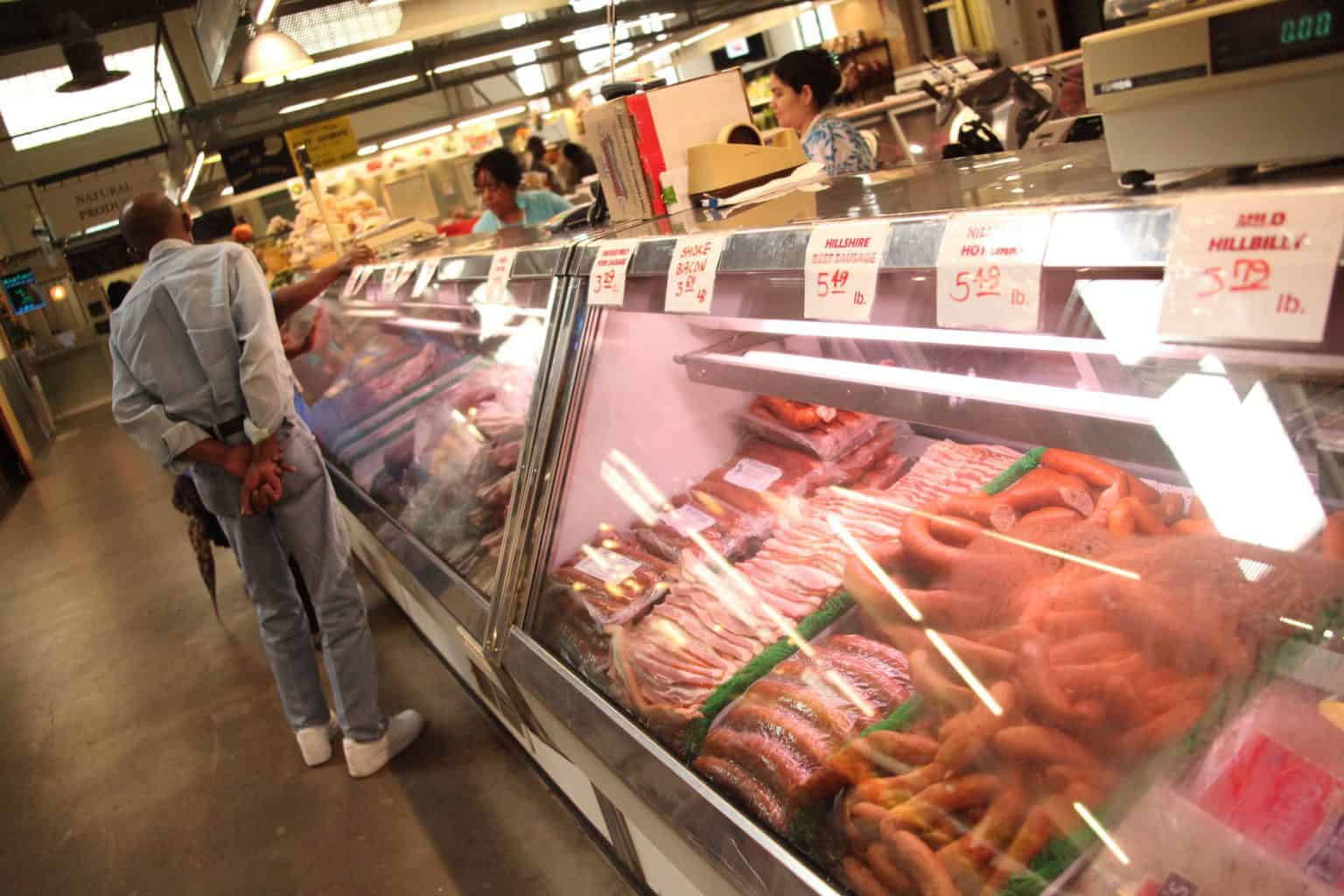Find Unique, Handcrafted Products at Farmers Market Edwardsville IL
Find Unique, Handcrafted Products at Farmers Market Edwardsville IL
Blog Article
Why Shopping at a Farmers Market Sustains Neighborhood Farmers and Your Community
Purchasing at a farmers market offers as a concrete ways of supporting local farmers while simultaneously bolstering the financial textile of your neighborhood. Think about the impact this has on local economic situations and food systems.
Financial Benefits of Farmers Markets

Farmers markets substantially add to regional economies by promoting straight sales between manufacturers and consumers. This straight transaction version eliminates intermediaries, enabling farmers to maintain a bigger share of the revenues. Subsequently, this enhanced income encourages neighborhood farmers to reinvest in their operations, purchase much better equipment, and improve farming practices. Such reinvestment not only boosts performance yet also receives local farming tasks.
Furthermore, farmers markets stimulate economic activity within the surrounding area. By drawing in consumers who might likewise buy from close-by organizations, these markets assist to create a vibrant regional ecosystem. The increase of shoppers urges foot website traffic, which benefits shops, cafes, and restaurants, inevitably resulting in a multiplier impact that strengthens the total economic situation.
This diversity of regional offerings can boost neighborhood identification and satisfaction. Overall, the financial benefits of farmers markets extend far beyond direct sales, cultivating a durable and durable neighborhood economic situation.
Freshness and High Quality of Generate
The exceptional freshness and top quality of produce found at farmers markets are vital variables that attract consumers looking for delicious and healthy and balanced options. Unlike supermarket offerings, which frequently undergo long transport times and storage periods, the fruits, veggies, and various other items available at farmers markets are typically collected just days or also hours prior to being offered. This immediacy ensures that the nutrients, taste, and texture are preserved, giving a superior cooking experience.
Furthermore, farmers markets often include seasonal fruit and vegetables, permitting customers to delight in fruits and veggies at the top of their perfection. Neighborhood farmers take pride in their growing techniques, commonly utilizing lasting methods that improve the top quality of their produce.
The direct connection between the farmer and the customer at these markets cultivates openness pertaining to agricultural practices, further ensuring customers of the quality of their purchases. As an outcome, customers can with confidence sustain their health while appreciating the rich flavors that come from regional, fresh gathered produce.
Structure Area Relationships
Community relationships thrive at farmers markets, where local manufacturers and consumers participate in significant interactions. farmers market edwardsville il. These markets offer as vivid community hubs, fostering connections that expand past simple transactions. Buyers have the special possibility to satisfy the very farmers that expand their food, helping with a much deeper gratitude for agricultural methods and the challenges dealt with by local manufacturers
This straight engagement develops trust and commitment, allowing consumers to support the really individuals that add to their community's economy and vigor. Additionally, these interactions frequently cause the sharing of knowledge concerning seasonal produce, cooking tips, and lasting methods, enriching the area's cumulative understanding of food systems.
Furthermore, farmers markets produce a feeling of belonging, as people from diverse backgrounds integrated to celebrate neighborhood culture and shared values. Occasions and tasks at these markets usually promote neighborhood craftsmens, musicians, and companies, boosting community ties (farmers market edwardsville il). As partnerships enhance, residents become much more spent in the success of their neighborhood farmers, growing a supportive environment that benefits all. Eventually, buying at farmers markets is not practically acquiring food; it has to do with supporting neighborhood bonds that add to a thriving and resilient local ecological community.
Supporting Lasting Practices
At farmers markets, lasting practices are not just encouraged but actively promoted, producing a platform for ecologically mindful consumption. These markets frequently feature regional farmers that use organic farming approaches, which significantly reduce the dependence on synthetic chemicals and fertilizers. By prioritizing organic growing, they add to healthier environments and promote soil wellness, guaranteeing that the land can sustain farming techniques for future generations.
Furthermore, many farmers at these markets accept lasting methods such as crop turning and permaculture methods, which enhance biodiversity and minimize soil disintegration. The emphasis on seasonal fruit and vegetables also minimizes the carbon impact connected with carrying food over fars away, promoting a much more lasting food system.

Supporting Neighborhood Food Systems

Sustaining neighborhood food systems additionally lowers the carbon footprint related to delivering food over cross countries. When customers Full Report buy straight from regional farmers, they reduce the requirement for comprehensive supply chains, thus saving energy and resources. Additionally, farmers markets often encourage sustainable farming practices, as neighborhood manufacturers are more probable to prioritize environmentally pleasant approaches to attract their neighborhood.
Additionally, by purchasing neighborhood food systems, customers contribute to the durability of their communities. A robust neighborhood food network can stand up to external stress and financial fluctuations, ensuring a secure food supply. Eventually, shopping at farmers markets not just sustains regional farmers but additionally improves the overall wellness and sustainability of the neighborhood's food ecosystem.
Verdict
Purchasing at farmers markets plays an important duty in boosting and supporting regional farmers neighborhood strength. The direct connection in between customers and regional manufacturers not only guarantees accessibility to fresh, high-grade food but likewise enhances neighborhood food systems.
Purchasing directory at a farmers market serves as a tangible ways of sustaining neighborhood farmers while at the same time boosting the financial textile of your community. By prioritizing local sourcing, farmers markets help preserve regional agricultural diversity and promote the usage of seasonal more produce, which in turn enhances regional economic climates.
Ultimately, shopping at farmers markets not only supports local farmers but also enhances the overall health and sustainability of the community's food ecosystem. (farmers market edwardsville il)
Shopping at farmers markets plays a vital role in enhancing and sustaining local farmers community strength. The straight relationship between consumers and neighborhood manufacturers not just makes sure access to fresh, premium food yet also strengthens neighborhood food systems.
Report this page